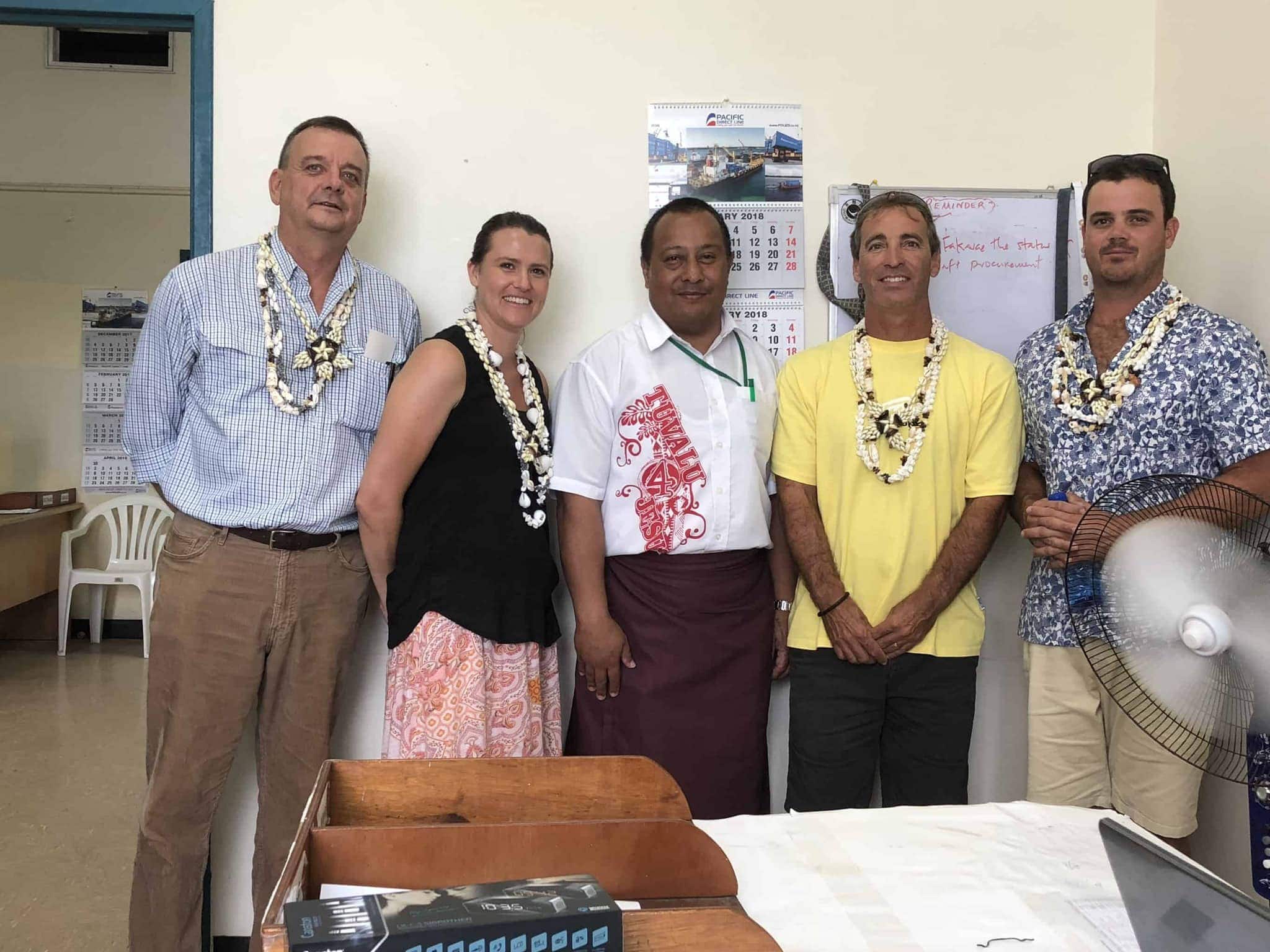Filling the void: Pacific Island workers now working on Australian tuna vessels
The first of many Pacific Island nationals have started working on Australian tuna longline fishing
vessels, providing businesses with a reliable source of workers and helping to fill otherwise vacant roles.
This is part of the Australian Government’s Pacific Labour Scheme that started on 1 July 2018.
In a keynote address about Australia’s Pacific partnerships in July 2018, Minister for Foreign Affairs Julie Bishop said, “The Pacific Labour Scheme enables a Pacific worker to obtain a visa for up to three years to take up non-seasonal work in areas of high demand here in Australia.”
The scheme matches workers from Kiribati, Tuvalu and Nauru with rural and regional employers in the non-seasonal agriculture, forestry and fishing; hospitality and tourism; and aged and disability care industries.
“What’s great about this scheme is that it fills Australian employment gaps while also supporting Pacific Islanders gain skills and supporting their economies,” said Minister Bishop.
The Pacific has a long history of seafaring. But since the onset of the Global Financial Crisis the
number of seafarers employed offshore are at their lowest levels.
The scheme will connect these seafarers with approved employers in the tuna industry who are
unable to source Australian deckhands.
“Some of the first workers under the Scheme have started working in Australia’s tuna industry,
offering a good match between Pacific workers’ skills and the Australian industry’s labour needs,” says a Department of Foreign Affairs and Trade (DFAT) spokesperson.

Kisona Tesimale at work on the FV Total, one of the Great Barrier Reef Tuna’s fleet. Photo by Kyle Lamason.
The scheme has been welcomed by Australian tuna fishing companies who have long struggled to fill non-seasonal, semi-skilled jobs including deckhands, and more skilled jobs such as engineers and skippers.
“Our company [Great Barrier Reef Tuna] has struggled to find dependable, reliable and skilled crew for our fishing boats as Australians do not want to be fishermen anymore,” explains boat owner and skipper Kyle Lamason.
“The Pacific Labour Scheme provides us with an opportunity to source good labour. This will enable our company to catch premium quality fish for the Cairns market and deliver economic flow on benefits to the region,” he says.
Steve Basile, manager of Angelica Fisheries in Ulladulla, agrees.
“The key to a successful business is having reliable skilled staff. When I travelled to Tuvalu and
visited their marine training college I couldn’t help but be impressed with their facilities, attention to detail and quality students.
“We look forward to having Pacific workers on our boats.”

Nick Volk (Palladium), Zoe Kidd (DFAT), Atabi Ewekia (Assist. Secretary, Ministry of Foreign Affairs, Trade, Tourism, Environment and Labour), Steve Basile and Kyle Lamason during a trip to Tuvalu to interview potential workers. Photo by Carson Young.
For the Pacific Island workers, these job opportunities enable them to earn an income and develop skills that will benefit their families and communities.
In 2018-19, the scheme has an overall cap of 2,000 workers across all sectors.
Over time access will be extended to other Pacific Island countries based on need, impact and progress on the PACER Plus regional trade agreement.
The scheme builds on the success of the Northern Australia Worker Pilot Program and the Seasonal Worker Programme, which provided workers from nine Pacific Island countries and Timor-Leste with jobs in the hospitality, agriculture, tourism and accommodation sectors.
Employers interested in participating in the scheme can access an employer self-assessment eligibility checklist on DFAT’s website.